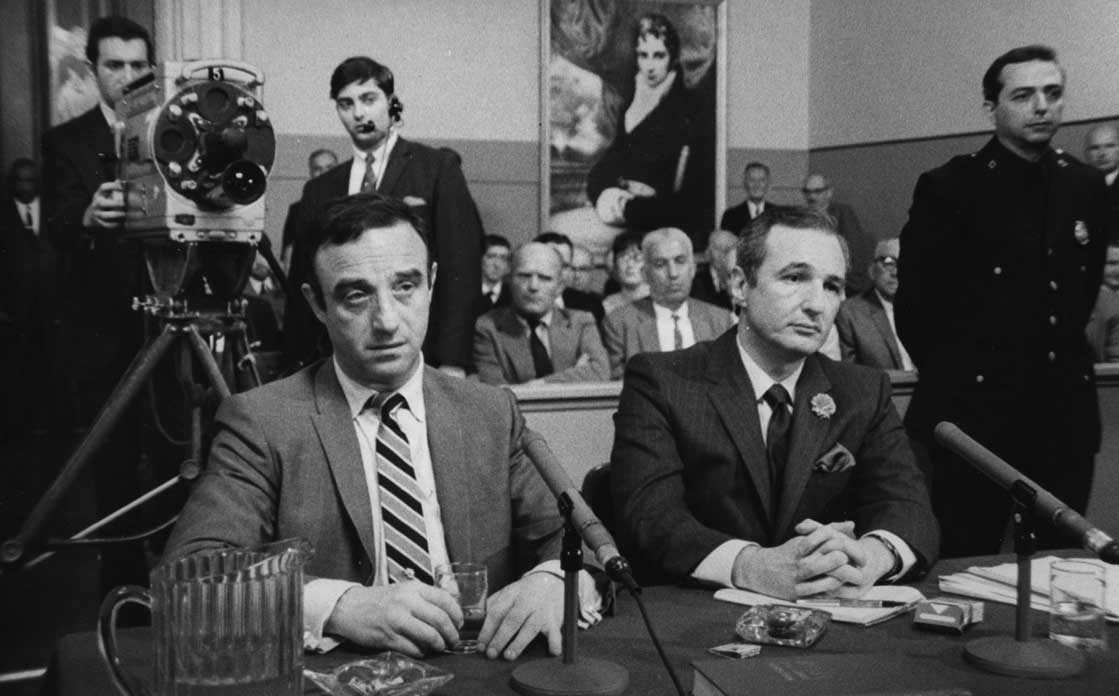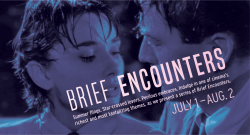Posted September 21, 2022
An Interview with Michael Roemer, director of The Plot Against Harry
By Vincent Abbatecola, guest writer
I was recently given the opportunity to interview writer-director Michael Roemer, whose 1969 film, The Plot Against Harry will be screened in new 4K restoration at the Jacob Burns Film Center for the 2022 Jewish Film Festival. In the interview, Roemer talks about what influenced him to become a filmmaker and what sparked his idea for the film which tells the small-scale, yet intimate story of the title character (played by Martin Priest) who tries to get his life back together after being released from prison.
1) What made you want to become a director and screenwriter?
I grew up in Berlin in the 1930s, and the adult world was pretty much preoccupied with an economic and political existence. It was the height of the Nazi regime. My childhood was dominated by fascism, and the adults in the home were totally preoccupied. I was pretty much on my own, expect for governance. I was very lucky to be sent on a kinder transport. I went to a school that was essentially a school for refugees. It was a quiet school, progressive, and wonderful, and it saved my life, psychologically. I always wanted to tell stories. I think that’s how I survived my childhood. I read, and read, and read, and then I started making up stories. That’s how I became a part of the school community, by telling stories, putting on puppet plays, and eventually small plays with the other children as actors. It was a way for entertaining the other children and making them respect and like me because I was such a strange boy, even in that school of refugees. So, storytelling became my way of surviving.
2) When developing your filmmaking career, who were some of your influences?
I think that is a complicated question because I worked for a sort-of big-time American filmmaker who was making feature films by the time I became his employee out of college. I recognized almost immediately that I didn’t want to go to the west coast, and that I wanted to make independent films. Because, although I liked almost anything that moved on the screen, I didn’t believe most of the stories I watched, and I wasn’t cut out to be a documentary filmmaker. I wound say there were European filmmakers that influenced me more than perhaps the American ones, but I don’t think anyone can really see any of that in my work because I didn’t start making what I would call “my own” films. It’s not a very useful term because a film is made by so many people, but I suppose that inasmuch I wrote the script, they were more mine than anyone else’s. I just don’t think any filmmaker influenced me by the time I was making movies. I liked the work of some filmmakers very, very much, but they made their own films, and I might have wished I had some of their gifts. But, I’m not sure that anyone had an influence on me in that sense. I admire some filmmakers very much, and still do.
3) When working in independent film, did you feel a sense of freedom when working outside the studio system when trying to tell the stories that you wanted to tell?
I worked for other people. I did what I was told. I did a good job. I got jobs on other people’s films. I served a whole series of apprenticeships. And, when I was ready and the opportunity came, I made a movie. That’s how that worked. I knew I wouldn’t fit into the studio system, so I never worked for it. I never felt oppressed by it. In that sense, I was like the documentary filmmakers who don’t try to make fiction films. They don’t feel oppressed by the system because they’re outside it. I was outside it.
4) What made you choose the topic of your film?
I think I started out wanting to make a film about money. I grew up in a fairly well-to-do home. I never went hungry or anything like that. Then, in England, we didn’t need money. We grew our own vegetables and made a few pennies that way, but we didn’t need money. It wasn’t a part of our life. Then, in America, I had no money, and I was in a school where there were a lot of people with a lot of money. I had three jobs. I got through school with a very small debt. But, I was very aware that I had no money, and I was very aware that everything ran on money. I was interested in the way money works. Not in a financial sense, but just the way how it affects people. I wasn’t oppressed by my lack of it (money). I knew I wouldn’t do anything because of money. I always made just enough to live on. I wanted to make a film about money, and The Plot Against Harry is all about money. I picked the numbers racket because that’s about money, and it’s on a small scale. It’s not abstract. It’s about people. Harry emerged out of my subconscious.
5) As someone who grew up in Germany and England and didn’t move to the U.S. until he was 16 or 17, were there any challenges in capturing 1960s New York City, a setting that was once unfamiliar to you?
No, it wasn’t hard at all. I lived in New York starting in 1949, actually on the lower east side. I found an apartment for $16 a month. I had a job uptown. I lived among the immigrant population. It was still heavily Jewish. So, I knew that environment. My closest friends in college were not Jewish, but, you know, I knew plenty of Jewish students. I was pretty identified as a Jew. There was no way I couldn’t be.
6) How did you find Martin Priest to be your star?
He was in another film Nothing but a Man we made. He played a southern bigot. And, he was a very good actor, and that was his first film. I originally thought Harry would be slightly older when I first thought about the movie. I was always knew Harry was the central figure. Then, it occurred to me that Marty could do this very well. It’s a totally different part from the part he played in Nothing but a Man. And so, I wrote the part with him in mind. I would eat lunch with Marty once a week during the year that I wrote that script, and we didn’t talk about the film because it was still embryonic. And, that was pretty much it.
The Plot Against Harry will screen during the festival on Friday, October 7 at 8:00, and Sunday, October 16, at 7:50.



